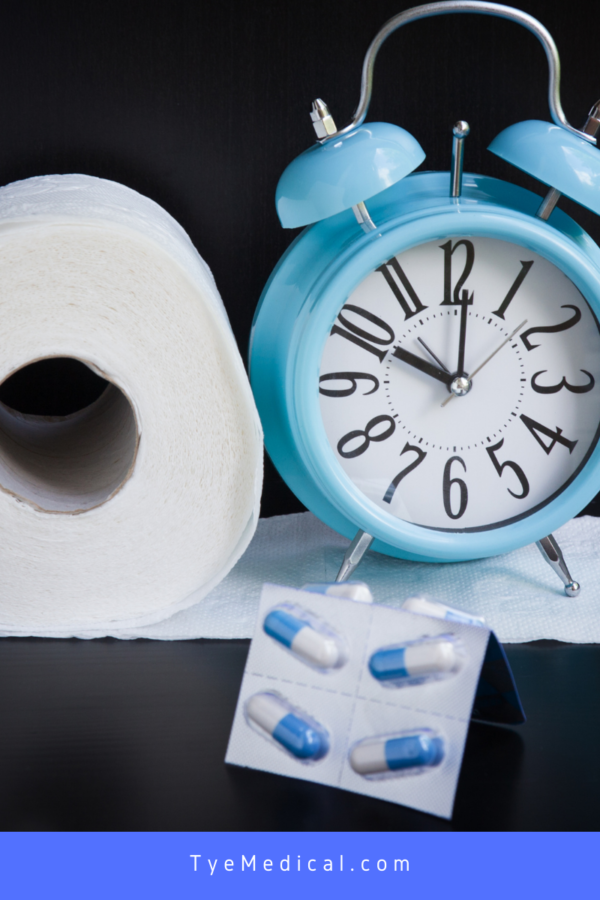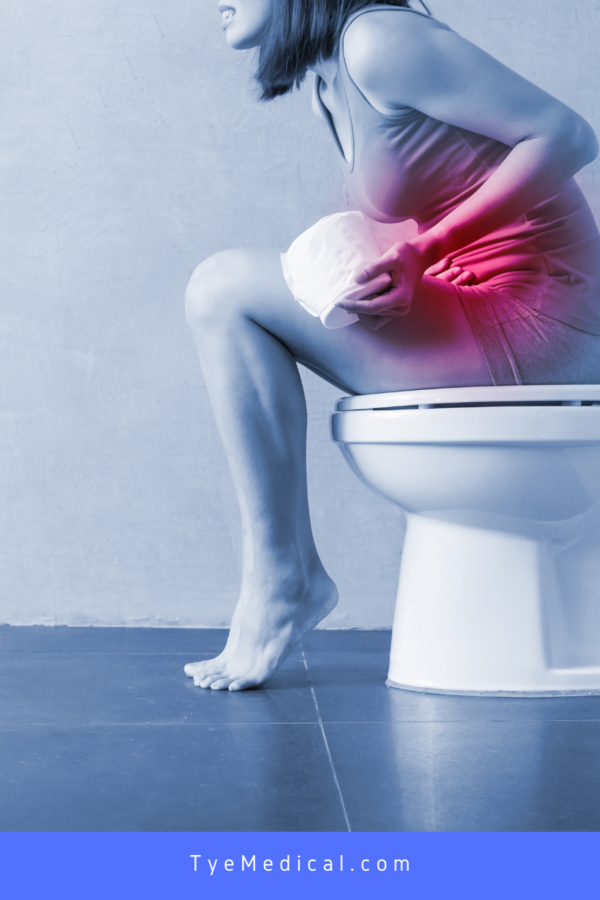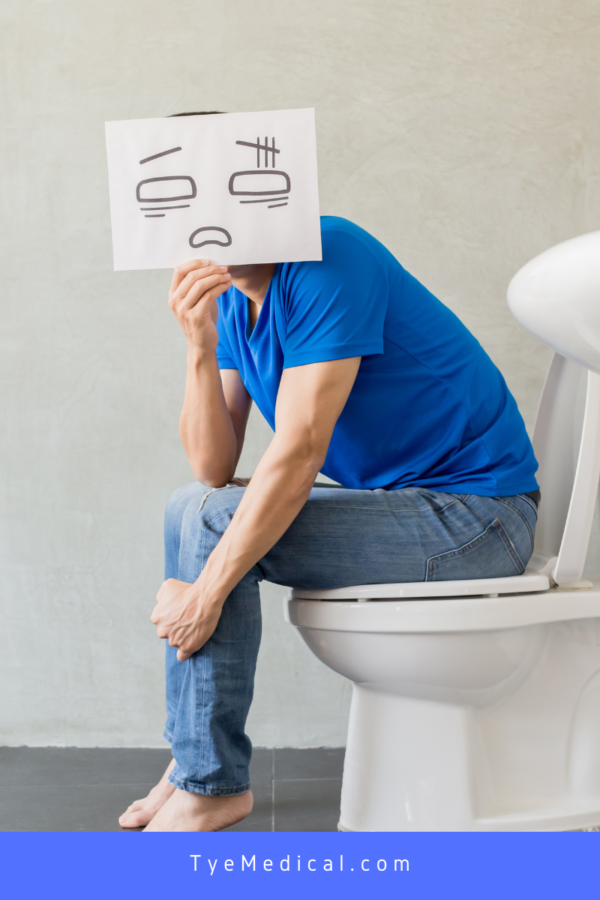Everything You Need to Know About Holding Your Pee
Nov 17th 2020
Sometimes, you don’t have a choice – you just gotta hold it. But is holding your pee regularly okay? And is it harmful to hold urine for a long time?
If you’re having any type of bladder symptoms, then the answers to these questions become especially important. After all, you don’t want to cause more damage or stress to your bladder. So what’s normal, and when should you be concerned?
Whether your bladder is already unhappy, or you want to be proactive about bladder health, it’s a good idea to be clued-in to healthy urinary habits.
How Does the Bladder Work?
Your bladder is a muscular organ that expands to contain urine and contracts to empty it. Two tubes (ureters) carry filtered urine from your kidneys to your bladder. Situated near the bottom of your bladder is the urethra. The urethra is a tube that allows urine to drain when the surrounding sphincter muscles are signaled to relax.
An adult bladder can hold 16-24 ounces of urine and has a wall lined with tiny receptors that calculate the amount of fluid at any given moment. At about the 25% full mark, these receptors send messages to your brain, signaling the need to “go.”
If you have a healthy bladder function, you can choose to hold your pee or void it right away. This means that even though you feel the urge to pee, there’s still time before your bladder fills. That’s why holding your pee usually isn’t a problem, and most people empty their bladders before it reaches capacity.
 How Often Do People Normally Pee?
How Often Do People Normally Pee?
There’s no simple answer to this question, because it varies from person to person, depending on your age and how much you drink.
Babies and children have smaller bladders and go more frequently. For example, infants usually wet diapers 6-8 times per day – and sometimes much more often. Toddlers, who typically drink more than babies, might empty their bladders 10 or more times in a day.
The average adult pees 6-7 times, but it’s considered “normal” to pee anywhere from 4-10 times daily. Again, the more you drink, the more often you’ll stop at the bathroom.
Another factor to consider is the effects of medications like diuretics and health conditions like diabetes and sickle cell anemia – all of which are known to increase urine output.
Is It Safe to Hold Your Pee?
Rest assured, holding your pee won’t kill you (at least not usually). In most cases, your bladder will involuntarily release the urine before any danger befalls you. Although extremely rare, it’s possible for you to hold urine so long (pushing the 9-10-hour mark) that when you finally try to go – you can’t. Eventually, the bladder can burst – and yes, that is a life-threatening emergency!
However, even if you held it so long that you couldn’t go, in today’s modern world, a visit to the hospital would alleviate the problem. (Think catheter.) So, do you really need to worry about this? Not at all.
What About Long-Term Complications from Holding It?
While there’s virtually no immediate danger from holding your pee, there are several possible side-effects from frequently putting off potty time. And for the sake of bladder health – it’s important to know about them.
1. Urinary Tract Infections (UTI)
When you hold your pee for too long, the existing bacteria might multiply in your bladder, increasing your risk for developing a urinary tract infection. This is especially true if you don’t drink much water and your urine is concentrated. Overly concentrated urine can cause the bacteria to spread through your urinary tract more quickly.
How do you know if you have a UTI? Symptoms include:
- Pain in the pelvic area or lower abdomen
- Burning or stinging when you pee
- Increased frequency (feels like you need to pee often)
- Cloudy or dark-colored urine
- Strong or bad-smelling urine
- Bloody urine
Other bladder conditions can mimic a UTI, so be sure to follow up with your doctor if you have frequent symptoms. Also, ask your doctor for a urine culture, which will help you know for sure that you’re dealing with an infection.
 2. Bladder or Kidney Pain
2. Bladder or Kidney Pain
Regularly holding your pee can also lead to pain in the bladder or kidneys. It might even hurt when you finally decide to go. This is because your bladder and pelvic muscles have remained clenched for too long. Even after urinating, it might be difficult to completely relax these muscles, and they can begin to spasm and cause pain. If this happens often, pelvic pain might continue for a while, even after the initial cramping.
3. Damage to Pelvic Floor Muscles
If you haven’t read our article The Mysterious Pelvic Floor: Why Both Sexes Should Pay Attention, then we recommend checking it out.
If you frequently hold your pee, you could be damaging your pelvic floor muscles, increasing your chances of developing incontinence.
So how are the two related?
Remember the sphincter muscles that surround the urethra? They rely on pelvic floor contractions to close off the urethra – which keeps you from leaking urine before you’re ready. So when the pelvic floor muscles are weakened from frequently holding urine, they’re not able to tighten around your urethral sphincter as well…leading to various degrees of urinary incontinence.
4. Bladder Stretching
Recall that the bladder is lined with layers of muscle – and of course, muscles expand and contract. So if you’re regularly holding your pee, you might also be stretching your bladder as it expands to hold more urine. While this might not sound like a big deal – it is! If your bladder is routinely stretched, it might make it more difficult (or even impossible) for it to contract and release like normal, which causes bladder emptying problems.
In severe cases, you might require a catheter to aid in bladder function.
5. Bladder or Kidney Stones
Your urinary tract forms these stones when urine becomes concentrated and is held in the bladder too long. As high concentrations of minerals, salts, and proteins sit in the bladder, they begin to crystalize and form hard deposits or “stones”.
Staying hydrated and regularly emptying your bladder helps prevent bladder and kidney stones. If you frequently hold your pee, you’re much more likely (but not guaranteed) to develop this problem.
 What Conditions Keep You from Peeing Normally?
What Conditions Keep You from Peeing Normally?
Regular bladder emptying isn’t so easy if you have certain health conditions that affect your ability to pee when you need to.
Kidney failure and UTIs can keep you from normal bladder emptying. But often, it’s some type of blockage due to an enlarged prostate in men or uterine or bladder prolapse in women.
Bladder control problems like incontinence, overactive bladder, or interstitial cystitis might also make emptying your bladder more difficult.
Incomplete bladder emptying or chronic urinary retention (CUR) occurs when you’re not completely emptying but don’t have the above-mentioned conditions. After ruling out obstructions, your urologist will likely order a test (cystometry/cystometrogram or CMG) to determine how well your bladder is functioning.
What About Bladder Training?
Once other conditions have been ruled out, your urologist might recommend bladder training to treat frequent urination. This is especially true if you’re holding your pee because you feel the urge to go so often.
During bladder training, your doctor will provide a personalized “pee schedule” to help you train your bladder to hold urine a little longer until you’re able to do so for a healthy and reasonable amount of time (based upon your how much you drink, of course).
If you’re drinking the appropriate amount of fluids and are bladder training under a doctor’s supervision, then “holding it” can be helpful instead of harmful.
 When Should You See a Doctor?
When Should You See a Doctor?
Talk to your doctor any time your experience consistent or acute bladder symptoms like:
- Frequency
- Urgency
- Pain
- Urine leaks
- Burning
- Discomfort
- Urine flow problems (feeling like you need to pee but can’t)
While we often take our bladders for granted, they serve an important purpose. So don’t be tempted to brush off urinary symptoms.
Instead, consider keeping a “bladder diary” to track symptoms for a week. Include how much fluids you drink, how often you pee, and any symptoms you experience. This will help your doctor determine a starting point for making a diagnosis and recommending treatment.
When Your Bladder Leaks – Get the Support You Need!
Like any other organ, the bladder is prone to certain problems and conditions – and what those are vary from person to person. Sometimes, our bladders leak. Whether the condition is temporary or more long-term, in the meantime, don’t hesitate to get the leak protection you need to feel clean, secure, and comfortable.
You have many brand options when it comes to incontinence products, so why choose Tye Medical’s LivDry brand?
We could give the usual answers like quality, absorbency levels, and special features – and all those answers would be true.
But one additional factor sets us apart – our Two-Piece System that allows you to change only a leak-proof pad rather than throwing out a pair of protective underwear. Over a day, this adds up to a lot of savings, easier changes, and some serious leak protection.
Check out our best-selling product (for use with our two-piece system)


